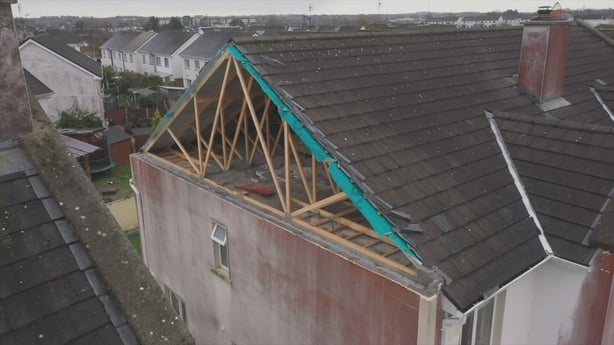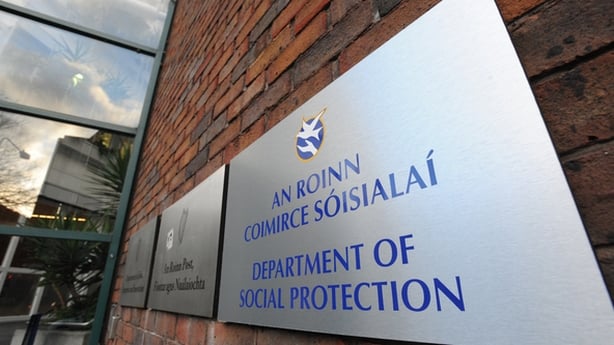Last week, Minister for Social Protection Dara Calleary confirmed that the State's Humanitarian Assistance Scheme is available to provide support to people living in properties directly affected by Storm Éowyn.
The scheme provides income-tested financial support to those whose homes are damaged from flooding and severe weather events, and who are unable to meet costs for essential needs, household items and structural repair.
How does it work?
When dealing with emergency events (such as Storm Éowyn) under the Humanitarian Assistance Scheme, there is a three-stage approach.
The first stage provides emergency support payments for food, clothing, and personal items in the immediate aftermath of the event.
Stage 2 covers the replacement of white goods, basic furniture items and other essential household items.
Finally Stage 3 looks at longer term financial support that's required for an affected property - including things like plastering, dry-lining, relaying of floors, electrical re-wiring and painting, as well as structural damage.
Importantly, the scheme does not cover:
- losses covered by an insurance policy, or loss of items deemed to be inessential or luxury items.
- commercial, agricultural or business losses.
- structural loss or damage to rented accommodation.
- repair or replacement of vehicles.
These are income-tested financial supports, so depending on how much you earn, that may impact the level of financial support you receive. The limits are:
- €50,000 for a single person.
- €90,000 for a couple.
- €15,000 per dependent child.
So, if your household's income is above these limits, reduced or tapered levels of support may be provided.
However, for the first of those three stages of support, income limits do not apply to any payments made.

How do people apply for supports?
For Stage 1 supports (covering food, clothing, personal items) - people need to fill out what's known as a Humanitarian Assistance Scheme (HAS1) form.
More details are also available on the citizensinformation.ie website.
You can also get the form from your local Community Welfare Service or from your local Intreo centre or branch office, of which there are well over a hundred located across the country.
There's a map of these locations on the citizens information website.
On the HAS1 form you'll need to provide personal details, information on your property, details of the damage caused to your property, and what your immediate needs are.
Emergency payments are normally paid by cheque. But if people want to be paid through a post office or by bank transfer, they can specify that on the application form and put in the relevant information to allow that to be done.
Completed forms then need to be returned to the Community Welfare Officer at your local Community Welfare Service.
How long will payments take?
Payments made to post offices and financial institutions are not instant.
The Department of Social Protection says the average transfer time for payments is two to three working days.
What about applying for more substantial financial assistance?
For assistance with the replacement of household goods and/or for structural damage, a Humanitarian Assistance Scheme (HAS2) form will need to be completed.
This application need to be made by the registered owner of the property.
How much is paid under the scheme depends on how severe the damage is and your ability to meet these costs.
Where the cost of structural repairs is estimated to be more than €5,000, the Department of Social Protection will get advice from a loss adjudicator.

Depending on your claim, you may also need to provide evidence of income, a copy of your insurance policy, two itemised quotations for the cost of structural repairs, estimates for the replacement cost of household items, and any paid invoices or receipts.
And don't forget, these claims are income-tested, so if you breach the limits (listed earlier in this feature) you may have to pay towards a portion of the repairs yourself (that amount will depend on how far above the limits your earnings are).
Have many payments have been made under the scheme since Storm Éowyn?
The Department of Social Protection has issued 1,150 payments to people affected, totallng €225,345.







